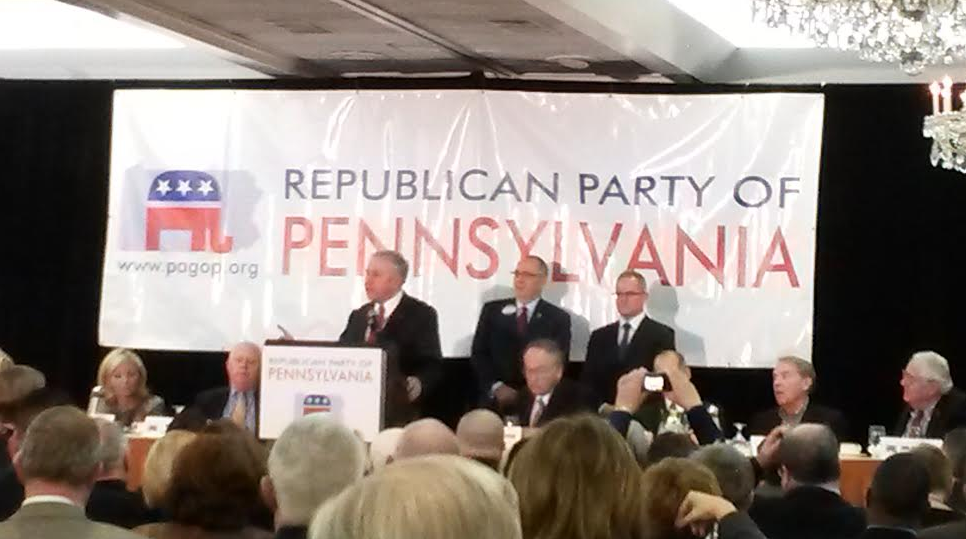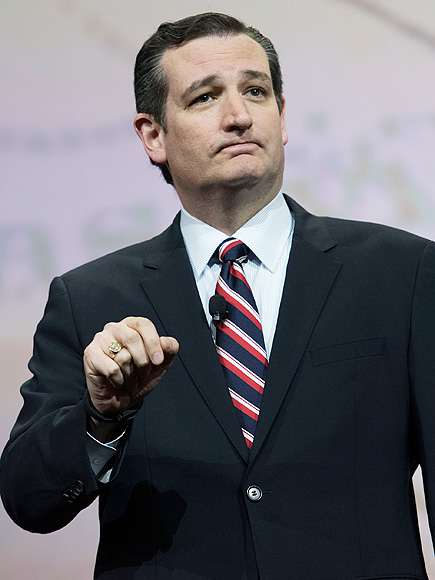 |
When Republican voters go to the polls in the mid-Atlantic states on April 26, Pennsylvania and its 71 delegates will be the biggest prize. But the winner of the popular vote in the Keystone State will be guaranteed only 17 of those delegates. The other 54 – three from each congressional district – will be elected on the ballot alongside the presidential candidates, and will arrive at the convention unbound. In a race that looks almost certain to go to a contested convention, those 54 delegates could wield a lot of power, and the campaigns will all work to win them over.
 |
But with just two weeks until the primary, the unbound delegates are not yet feeling the love. A number of delegates who spoke to National Review say they have had little or no contact from the campaigns. And several expressed surprise at the lack of activity in the state.
“We’ve fallen between the cracks, and we’re a big bloc of unbound delegates,” says former Pennsylvania congressman Phil English, who is running for delegate in the 3rd Congressional District.
Pennsylvania is unique in the primary process. The large pool of unbound delegates is not tied to any campaign, and the campaigns do not necessarily file a slate of delegate candidates for their supporters to choose. The delegates are responsible for getting the necessary signatures to petition their way onto the ballot, and then for publicizing their candidacy. Voters might not know what they’re getting with a vote for a delegate: Some delegate candidates openly say which candidate they plan to support, but others are running as uncommitted, saying they will make a decision later, when there might be more clarity in what has been a rollercoaster of a campaign. There is reason to be wary of making a commitment: Delegate candidates had to file their paperwork to get on the ballot by February 17, and most began the process in January, when there were many more presidential hopefuls in the race. Some people filed to run for delegate to support someone who is no longer a candidate. And the remaining campaigns have been slower to invest financial resources or to hold events in the state, owing to its late date, meaning that many of those delegates might win a spot on the ballot having had little contact with the campaign they’ll ultimately support.
[...]
... Saul Anuzis, who is helping to run the delegate effort for the Cruz campaign, says: “We identified candidates who are Cruz-friendly or Cruz supporters and we will be helping them in various different ways, and then obviously we’re looking for other candidates that might be Cruz-sympathetic,” based on information about their friends or affiliations. But a lot of the wooing, he says, will happen after April 26, when the campaign knows which of those people will actually be delegates. Pennsylvania voters, suggests Anuzis, are attracted to the fact that delegate candidates “are running to get elected in their own right, which gives them a tremendous amount of independence.” For that reason, campaigns don’t necessarily run slates of candidates.
Gessa, who entered the delegate-election process as a committed Cruz supporter, is an illustration of some of what the Cruz campaign has been doing. She was initially contacted by someone in the Cruz campaign about her interest in becoming more involved. Then, at the Pennsylvania Leadership Conference last month, that person invited her to meet Cruz personally. She also met with the Pennsylvania campaign director, she says. After the meeting with Cruz, she signed a pledge committing to back him. Cruz’s state director, Lowman Henry, is the former president of the Pennsylvania Leadership Council, which organizes the conference — giving Cruz an entrée to a network of conservatives in the state. ...Read the full story HERE.
If you like what you see, please "Like" us on Facebook either here or here. Please follow us on Twitter here.




No comments:
Post a Comment